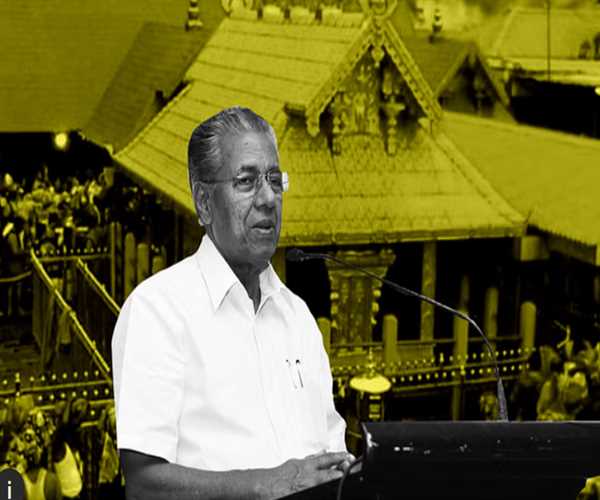
08-Feb-2024 , Updated on 2/8/2024 9:20:55 PM
Kerala CM Leads Delhi Protest on Feb 8 Despite Modi's Critique on 'Our Tax' Language
The Kerala Chief Minister staged a demonstration in Delhi on February 8th against what was allegedly the introduction of Hindi as the official language by the central government. Following
Prime Minister Modi's remarks on using "our tax," which many saw as supporting Hindi above other regional languages, this action was taken.
The Chief Minister's opinion against the Hindi language is criticized for being perceived as purely personal and harmful to the country's interests, especially given India's linguistic diversity. But it's important to take into account the sentiments of the people of Kerala and other non-Hindi speaking regions, as well as the historical background.
India is a diverse nation with various languages and cultures. Language has always been a sensitive issue, especially regarding the dominance of Hindi as a national language. Kerala, known as a god’s own country, has historically attempted to impose Hindi on its people.
Many Keralans who value their language and cultural history have expressed their emotions through the Chief Minister's leadership in the protests against the imposition of Hindi. It's a defense of linguistic diversity and the rights of populations who don't speak Hindi, not necessarily an act of self-centeredness.
It is also possible to interpret the demonstration as a democratic way of expressing disapproval and a request that the federal government uphold the linguistic rights of all Indian citizens. As the protest's leader, the Chief Minister is standing up for his constituents' interests and promoting a more inclusive national language policy.
It's critical to acknowledge that India's linguistic diversity is one of its greatest assets, and that attempts to impose a single language risk undermining that diversity and inciting hostility among linguistic minorities. Thus, it is possible to regard the Chief Minister's opposition to the imposition of Hindi as a moral stand for linguistic plurality and the federalist ideal.
In conclusion, even though the Chief Minister's objection might seem self-serving to some, it's important to comprehend the larger picture of language politics in India as well as the historical background. Values essential to India's democratic fabric, the demonstration stands for a righteous expression of disapproval and a defense of linguistic diversity. It is imperative that legislators acknowledge and uphold the linguistic rights of every Indian person, irrespective of their mother tongue.

CONTENT WRITER
Writing is my thing. I enjoy crafting blog posts, articles, and marketing materials that connect with readers. I want to entertain and leave a mark with every piece I create. Teaching English complements my writing work. It helps me understand language better and reach diverse audiences. I love empowering others to communicate confidently.
Join Our Newsletter
Subscribe to our newsletter to receive emails about new views posts, releases and updates.
Copyright 2010 - 2026 MindStick Software Pvt. Ltd. All Rights Reserved Privacy Policy | Terms & Conditions | Cookie Policy